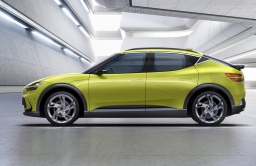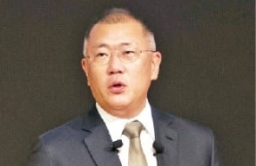-
KOSPI 2577.27 -2.21 -0.09%
-
KOSDAQ 722.52 -7.07 -0.97%
-
KOSPI200 341.49 +0.02 +0.01%
-
USD/KRW 1396 -2.00 0.14%
Hyundai Motor swings to profit in Q3 on Genesis, SUVs
Earnings
Hyundai Motor swings to profit in Q3 on Genesis, SUVs
Cuts 2021 sales volume forecast by 3.8% due to chip shortage; slashes investment plan
By
Oct 26, 2021 (Gmt+09:00)
2
Min read
News+
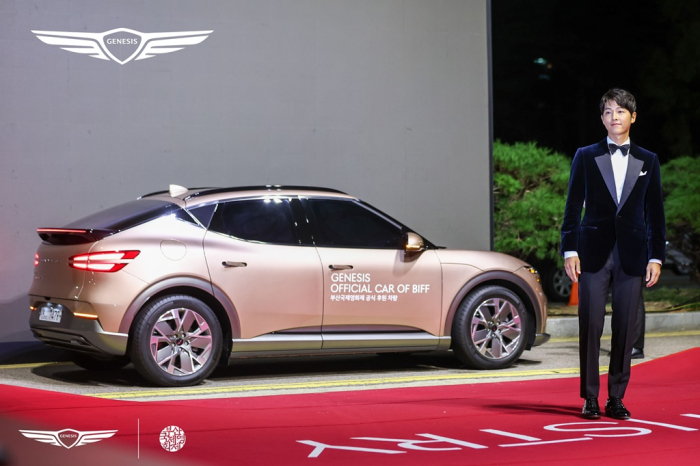
Hyundai Motor Co. South Korea’s top automaker, turned to an operating profit in the third quarter on strong sales of the premium Genesis models and higher-end sport utility vehicles (SUVs).
Hyundai, however, lowered its full-year sales volume forecast by 3.8% as the ongoing global automotive chip shortage interrupted its production, according to its filing to the financial regulator on Oct. 26.
The company reported an operating profit of 1.6 trillion won ($1.4 billion) in the July-September period, compared to a loss of 313.8 billion won a year earlier when it was hit by a one-time expense related to engine quality issues and recalls. In October 2020, Hyundai earmarked 2.1 trillion won in provisional expenses related to its Theta engines.
Its revenue grew 4.7% to 28.9 trillion won in the third quarter on-year even as its sales volume skidded 9.9% to 898,906 units due to the chip shortage with domestic and overseas sales down 22.6% and 6.8%, respectively.
Hyundai posted revenue growth thanks to strong sales of cars in the Genesis lineup and SUVs. The Genesis models accounted for 5.1% of the total in the third quarter, up from 3.2% a year earlier, while the proportion of SUVs rose to 47.1% from 45.5%. Its operating profit margin stood at 5.6%.
“The profitability improved on rising sales of Genesis models and SUVs, as well as lower costs related to quality,” Hyundai said.
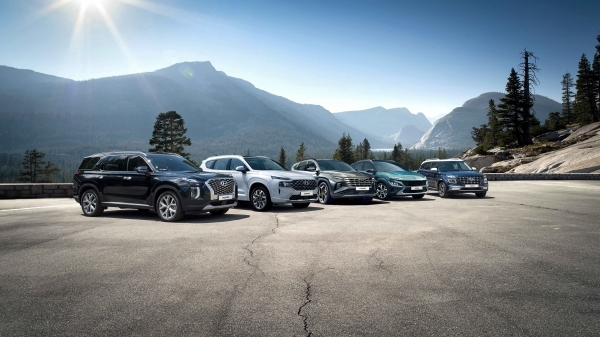
STILL UNDER PRESSURE FROM CHIP SHORTAGE
Hyundai expects business conditions to remain under pressure from the chip shortage through to the end of the year. The company slashed its full-year sales volume forecast to 4 million units from the previous 4.16 million.
It also cut investment plans for this year to 8 trillion won from 8.9 trillion won in order to secure liquidity amid rising external uncertainties.
On the other hand, the company raised its revenue growth target to 17-18% from the previous 14-15%, reflecting the popularity of its high-end models. Its operating profit margin target was increased to 4.5-5.5% from the prior 4-5%.
Sales of the Genesis models are expected to increase in the fourth quarter. The Genesis brand’s first electric vehicle GV60, released earlier this month, has already attracted more than 10,000 drivers. Hyundai is scheduled to launch a new version of the flagship G90 around the end of the year.
The company aims to raise overall sales by 15-20% in the fourth quarter from the previous three months. Analysts forecast its operating profit margin at 4-7% in the October-December period with revenue of more than 25 trillion won.
Hyundai plans to raise its target of EV sales in 2025 from the current 560,000 units, a company executive said.
“Given the quickly changing EV market, it is a slightly conservative target,” said Koo Za-yong, Hyundai’s senior vice president, during an earnings call. “We are preparing a revised strategy.”
Hyundai sold a combined 99,403 EVs in the first three quarters of this year, up about 40% from the same period a year earlier.
Write to Il-Gue Kim at black0419@hankyung.com
Jongwoo Cheon edited this article.
More To Read
-
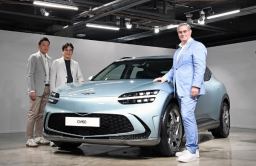 Electric vehiclesWith Hyundai’s Genesis GV60, your face is the key to unlock the door
Electric vehiclesWith Hyundai’s Genesis GV60, your face is the key to unlock the doorSep 30, 2021 (Gmt+09:00)
-
Aug 19, 2021 (Gmt+09:00)
-
Oct 19, 2020 (Gmt+09:00)


